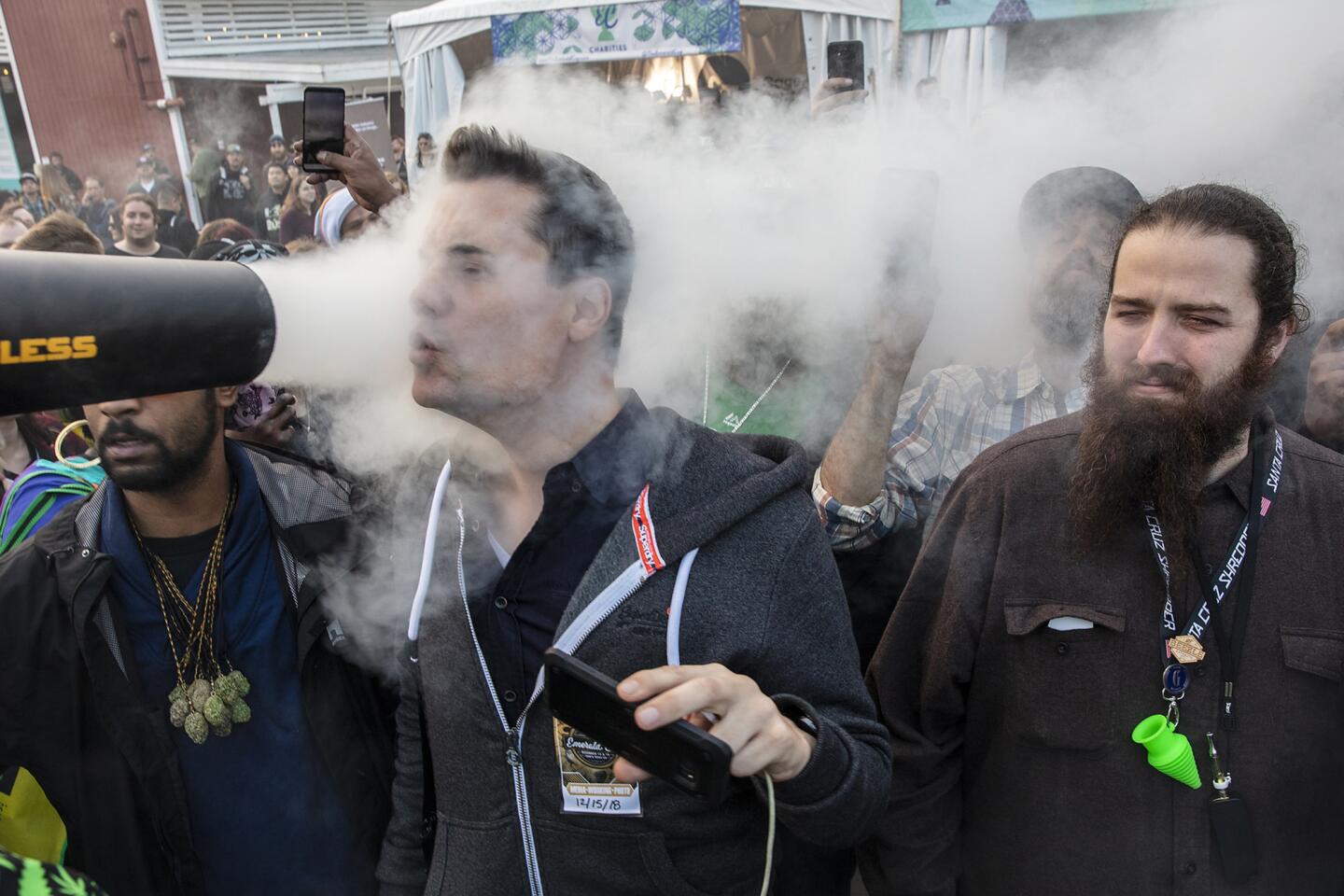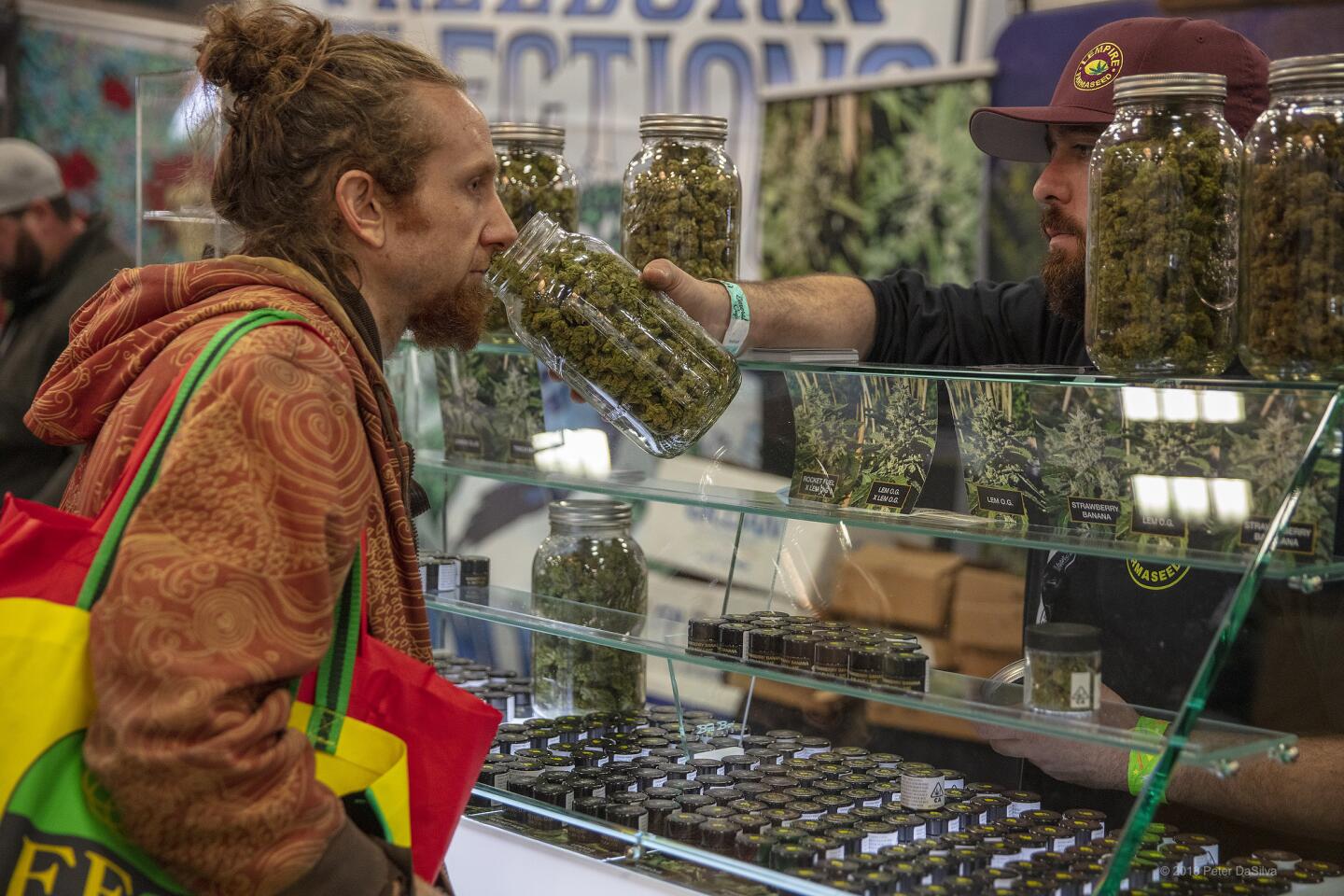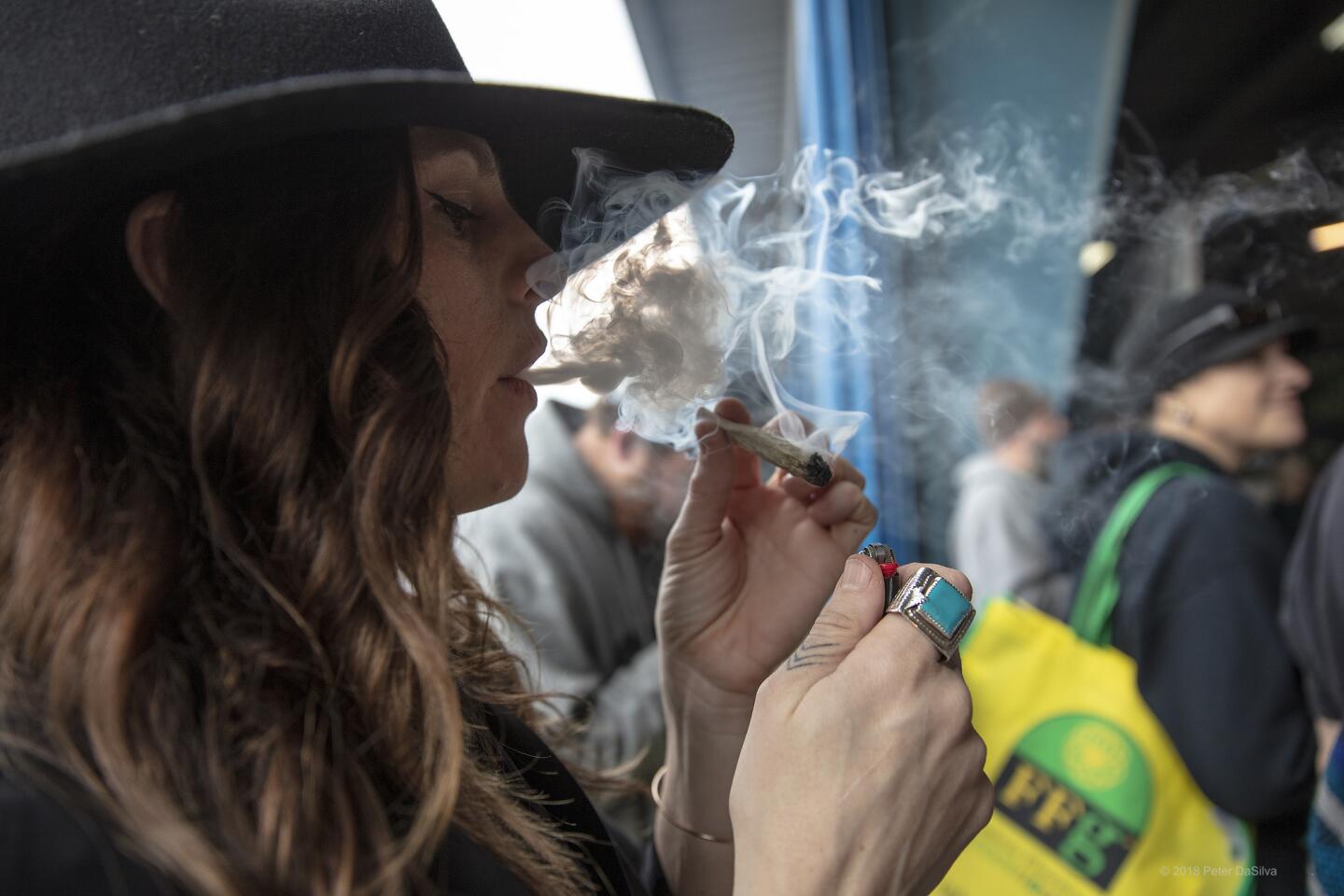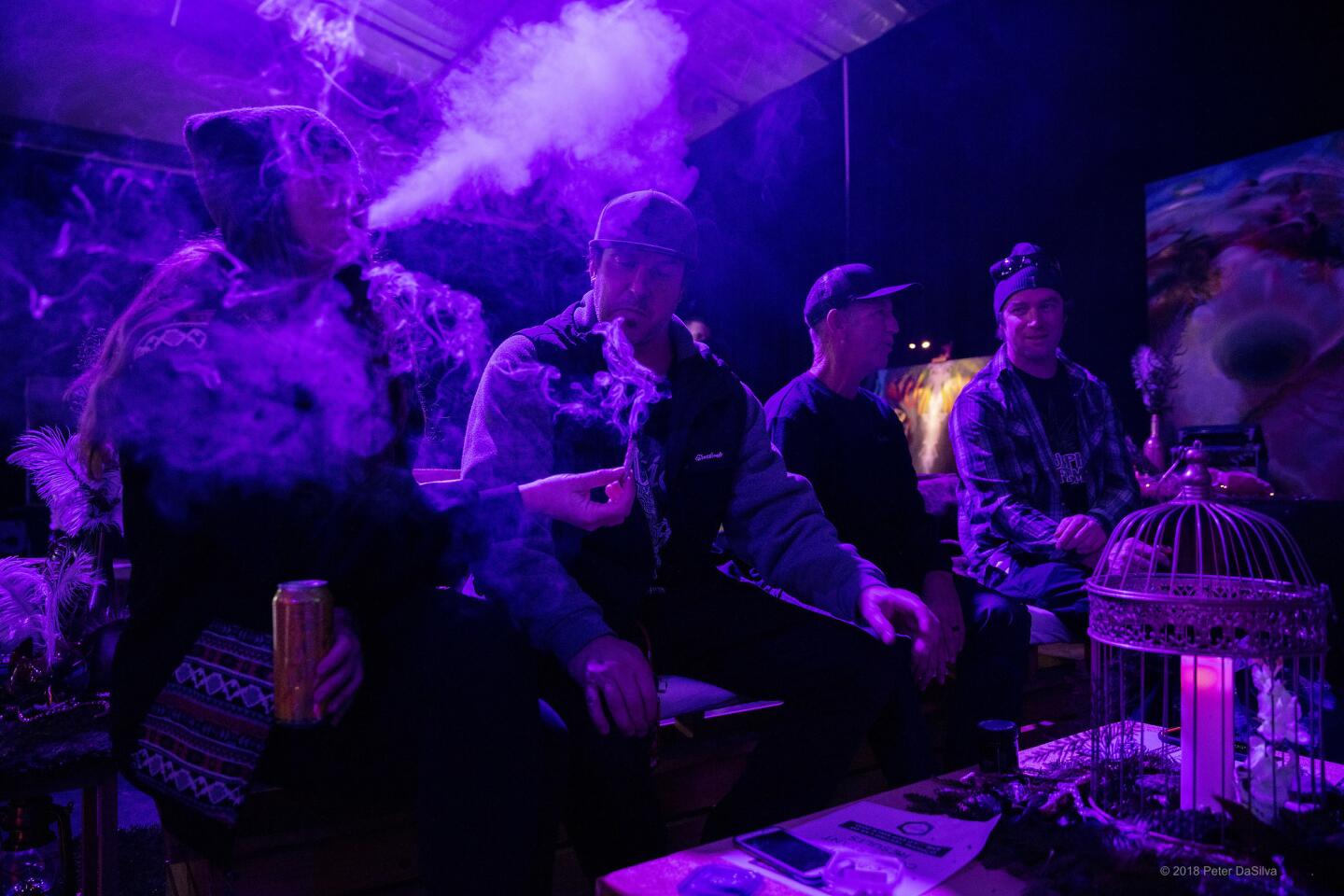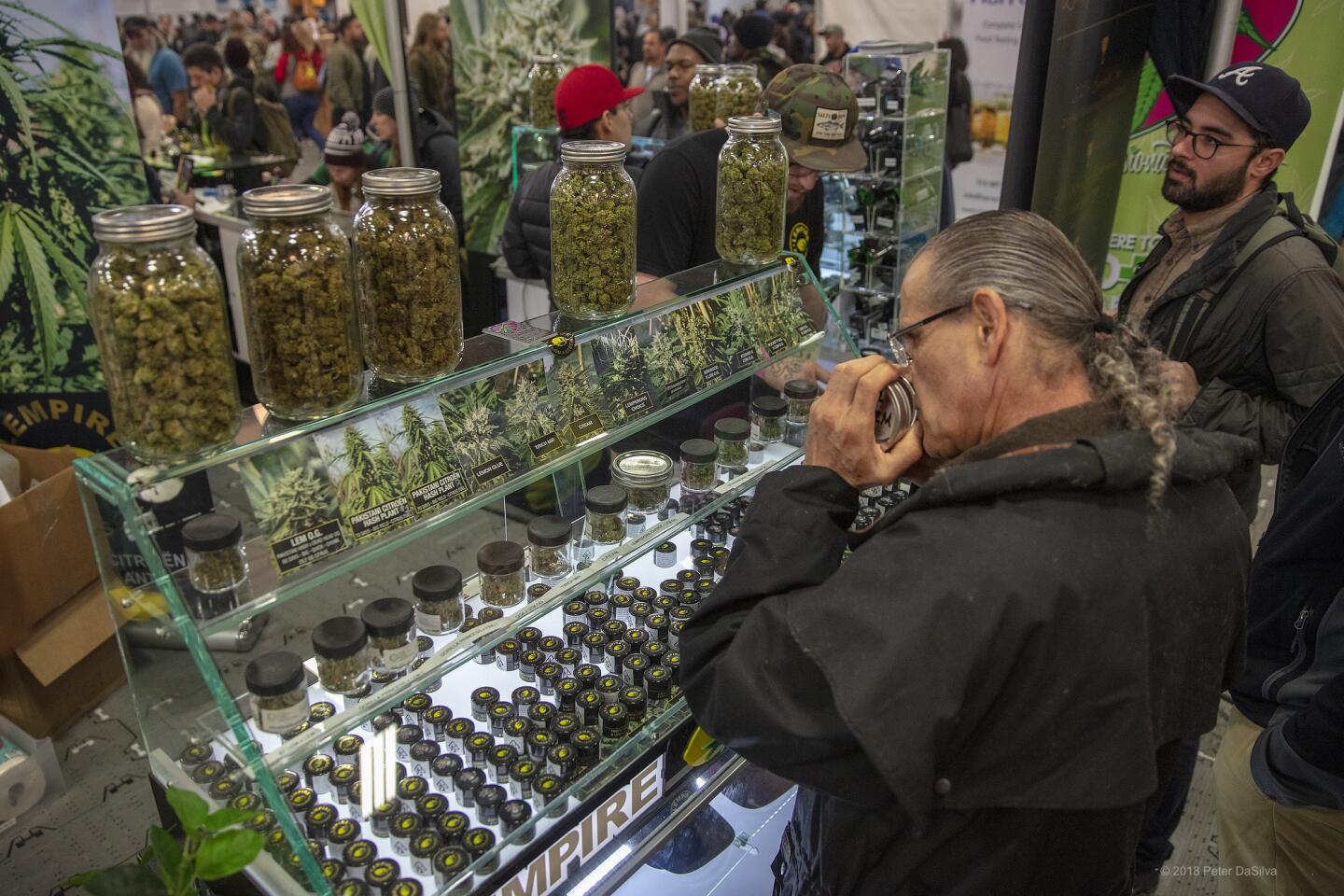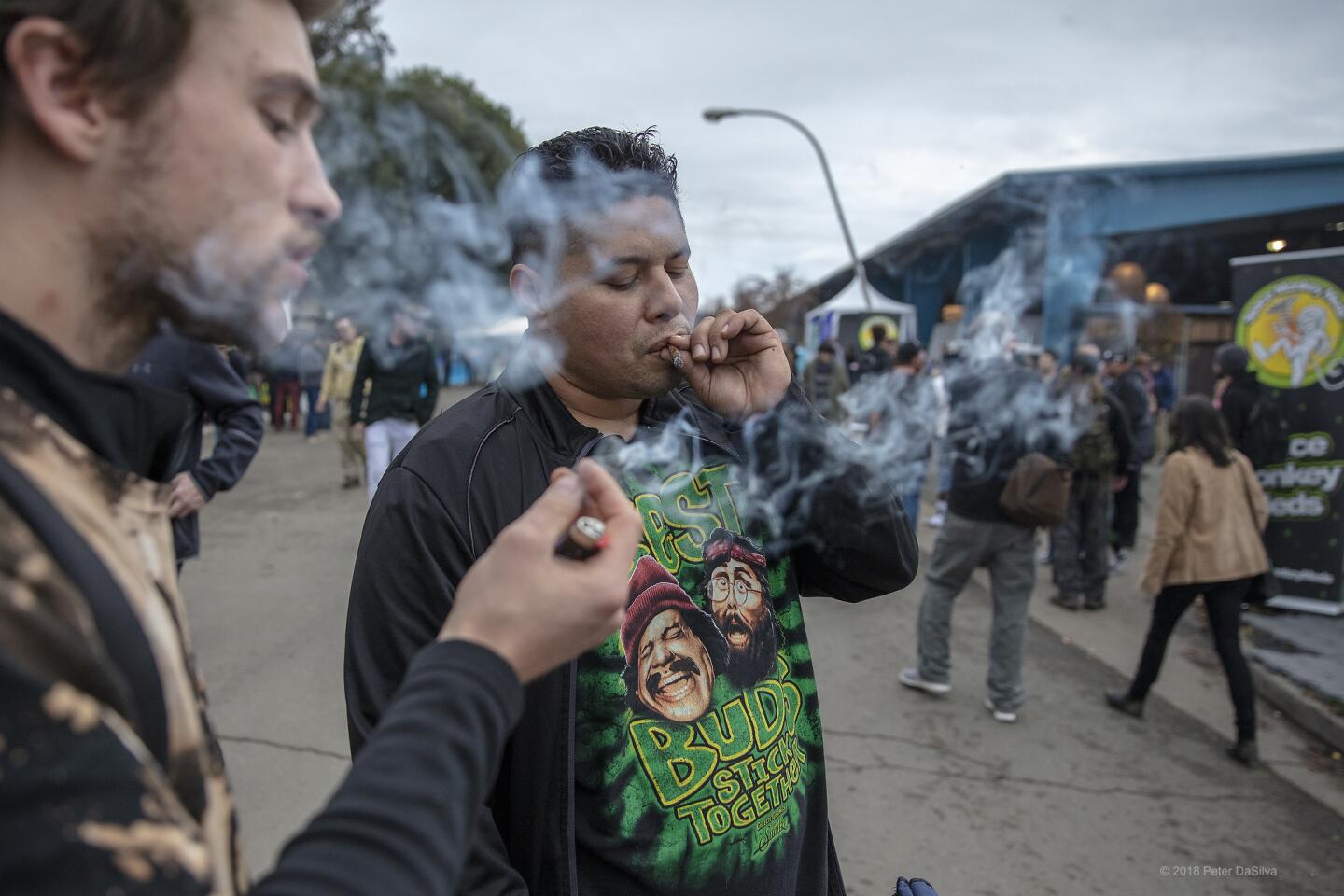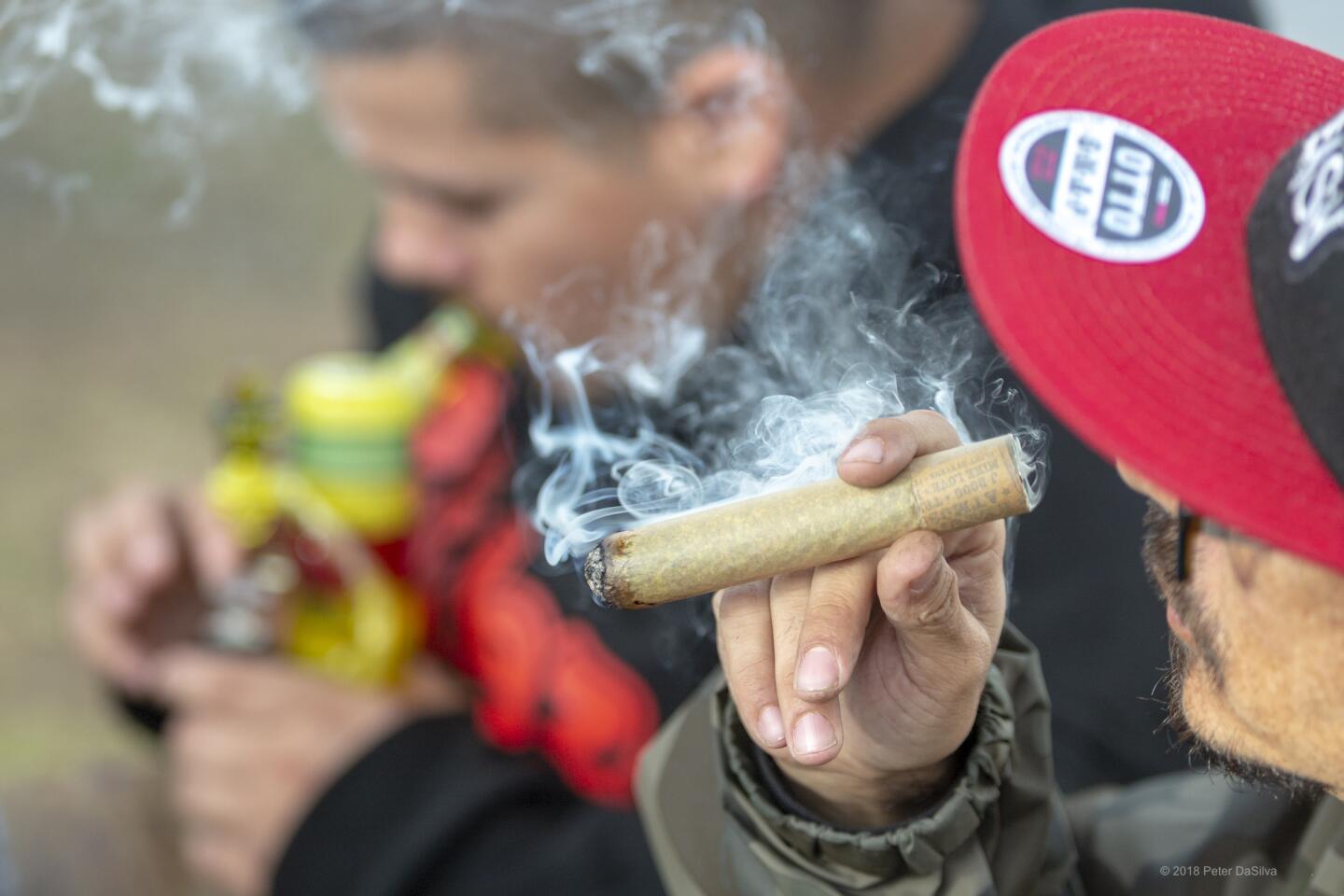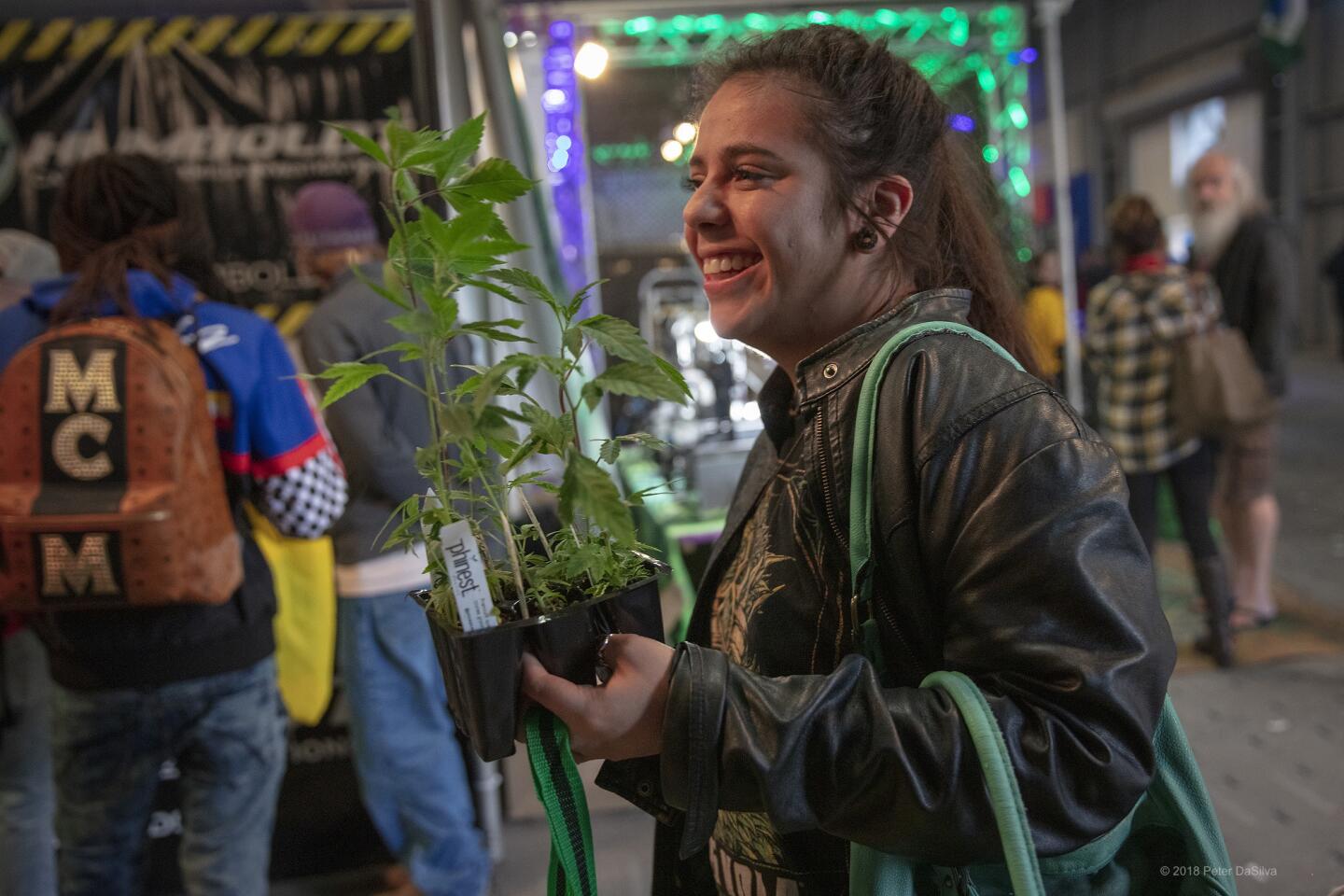Column: Stoned on pot, but clear-eyed about legalization’s threat to California’s legendary cannabis culture
- Share via
Reporting from Santa Rosa, Calif. — You’d be hard pressed to see it at the Emerald Cup, where the pot smoke was so thick it gave me a sore throat, but the good times are not rolling for many of Northern California’s cannabis farmers.
The irony is as rich as the honey-colored extracts that have become the smokable consumer pot product of choice. Those who toiled for so long in a black market, who couldn’t talk freely on the phone, who always checked their rear-view mirrors, who went to jail, who lost their kids, are now facing extinction because of legalization.
When the timber industry declined, and the salmon fisheries collapsed, illegal cannabis revived this part of California. Generations of families depended on it. There will always be a place on the dispensary shelf for the top-notch cannabis grown by farmers in the Emerald Triangle of Trinity, Mendocino and Humboldt counties, but it is a niche product in a vast legal marketplace.
“There is mourning going on for all the people who were part of the industry who are not going to see the Promised Land,” said veteran grower Tim Blake, who founded the Emerald Cup 15 years ago to celebrate the harvest of this region’s legendary sun-grown pot. “Our typical American capitalist society is taking it over. It’s going to be a fight for every small farm and every small cultivator to find a place at the table. I’m excited, but I am torn for all the people who have come to me and said, ‘What happened?’”
What happened, of course, was Proposition 64, the 2016 initiative that passed in a landslide. Instead of being available only to medical patients, cannabis can now be bought by anyone age 21 and over. No longer targeted by the California Highway Patrol and local sheriffs, growers are suffering from plummeting cannabis prices, unaffordable licensing fees and strict environmental controls.
“I have friends who have lost their way of living,” said Dennis Hunter, 47, cofounder of CannaCraft, a wildly successful Santa Rosa company whose labels include Care By Design, AbsolutExtracts and Satori. “The sheriffs didn’t really shut down marijuana as well as code enforcement has. It’s really affected the small farmer that’s growing his crop on five acres. We’re losing that part of our industry to big ag.”
Hunter, who served six and a half years in federal prison for illegally growing cannabis, recently hired a CEO: William Silver, the former dean of Sonoma State University’s business school.
“This is a huge industry now,” Hunter said. “It attracts a lot of money and investment, so a lot of people that were there in the trenches, generations of growers that supported their families and communities, are going away. It’s inevitable.”
::
Over two days, about 28,000 pot enthusiasts converged at the Sonoma County Fairgrounds for the Emerald Cup.
It is a party, an industry conference, a marketplace and a vaunted county fair competition whose winners are immediately rewarded with a leap in sales. It is also a music festival; this year Willie Nelson showed up to receive a lifetime achievement award for his cannabis advocacy.
Despite the gray December skies and rain, the mood is happy and mellow (as you would expect in a place where so many are stoned).
Along the midway, tents were filled with booths where vendors sold pot flowers, live plants, vape cartridges, tinctures, gummies, chocolates, balms and salves. I tasted a non-alcoholic beverage made with hops that was the result of a partnership between CannaCraft and Lagunitas Brewing Co. Hi-Fi Hops, at $10 per bottle (once the various taxes are figured in), contains 5 mg of THC and 5 mg of CBD, and is available only in dispensaries. It had the fruity tang of an India pale ale, so I bought a few bottles for one of my pot-loving, IPA-crazy family members.
This year, some people waited as long as six hours in a line that snaked through the livestock barn in order to buy sought-after seeds, which can cost as much as $50 apiece.
I bumped into Jessica Angelo, who works for a cannabis grower in Sonoma County. “I’m in line for our genetics hunter,” she told me. “We have to find the best phenotypes to grow the best weed.”
In the permanent halls, panel discussions cover the intricacies and frustrations of licensing, barriers to medical research on cannabis, microdosing, spirituality and the science of growing.
This was the first post-legalization Emerald Cup, and Blake had to navigate the new regulations that have plagued so many growers, manufacturers and dispensaries. It seems that in all the planning for legalized adult use, no one really thought much about how big festivals like this — where millions of dollars in cash changes hands — would be regulated. (For the most part, cannabis is a cash business because of its federal status as an illegal substance.)
In the past, vendors would sell their wares only to customers who could prove they had a doctor’s recommendation, because cannabis was legal only for medical use. There appeared to be no accounting requirements other than a regular plea from former Board of Equalization chairwoman Fiona Ma to please report your sales and pay your taxes.
This year, among other changes, there were electronic registers at all points of sale, with actual receipts.
“They made the best of our regulations and came out with a pretty brilliant system,” said Lori Ajax, chief of California’s Bureau of Cannabis Regulation. We spoke in a golf cart that bumped along in the pouring rain, as she took an impromptu festival tour after her panel discussion on the status of legalization.
Blake, the Emerald Cup founder, was not quite as happy. “It was a lot of work to put on a legal event because the state wasn’t prepared for it,” he told me. “They were paranoid and afraid of us and don’t trust us. I think we spent about half a million dollars on compliance and lobbyists.”
::
I will give the last word here to longtime cannabis activist and native Californian Vivian McPeak, executive director of Seattle Hempfest, the world’s largest annual cannabis reform rally. Legalization, he insisted, is not the same thing as equality. Cannabis entrepreneurs still can’t use banks.
Plenty of people are still going to jail in the U.S. for violating cannabis laws. In 2017, according to the Drug Policy Alliance, 659,700 people were arrested for marijuana law violations, almost 600,000 of whom were arrested for possession only.
“We need to get the government to stop treating cannabis like it’s plutonium,” he said.
Many people I spoke to said they think the federal government may soon remove cannabis from its list of dangerous, controlled substances. They are both horrified and delighted that an establishment politician like Republican former House Speaker John Boehner is now shilling for cannabis. And that Kentucky Republican Sen. Mitch McConnell pushed through a farm bill that legalized industrial hemp for the first time in decades.
“A lot of people who were laughing at us in the early days,” McPeak said, “are coughing now because they’re smoking legal cannabis.”
Twitter: @AbcarianLAT
